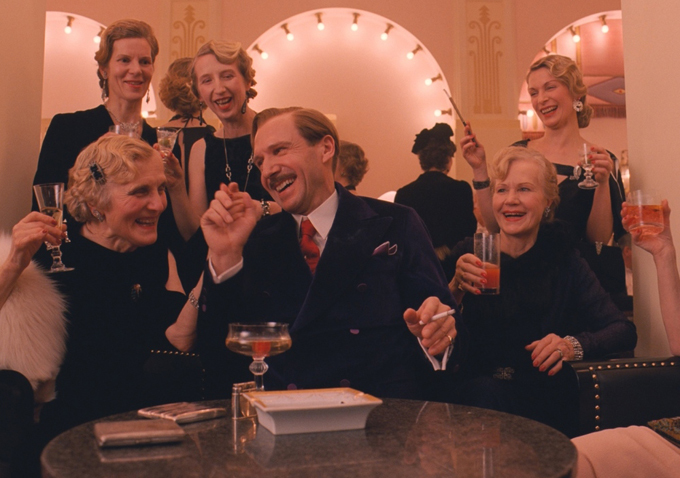
Like all of writer-director Wes Anderson’s films, The Grand Budapest Hotel is wry and imaginative, but it’s not one of his near-masterpieces (Rushmore, Moonrise Kingdom). Ray Fiennes plays one of Anderson’s unique creations, the imperious and shady concierge of an Eastern European hotel between the world wars. His sidekick is the rookie lobby boy (Tony Revolori). Together, they navigate a Mr. Toad’s Wild Ride involving the concierge’s additional vocations of gigolo and lovable scoundrel.
The cast is superb and absurdly deep. I counted THIRTEEN Academy Award nominees (mostly for acting, but Jeff Goldblum won an Oscar for a Live Short and Bob Balaban was one of the producers for Best Picture nominee Gosford Park). It’s overkill, because fine actors like Edward Norton, Tom Wilkinson, Lea Seydoux and Larry Pine don’t really have much to do. F. Murray Abraham, as the lobby boy turned old man, does stand out.
And that points out the weak spot in The Grand Budapest Hotel. I kept saying to myself things like, “Look at the makeup on Tilda Swinton”, “Is that Jeff Goldblum behind that beard?” and “Awwright! Bill Murray!”. That tells me that I wasn’t fully engaged in the story. Some critics have pointed out the historical sweep from the post-imperial 1930s through the crucible of WWII to the boring industrial totalitarianism of the 1950s. For me, that’s still not enough to make a great movie. But The Grand Budapest Hotel is fun to watch, and that’s not bad.

I just kept wanting more, more depth, more history, more intrigue. I did find myself engaging with the characters particularly the Lobby Boy. Maybe some sights of Hungary too would have been good to add. It was ok for me, not bad, not great